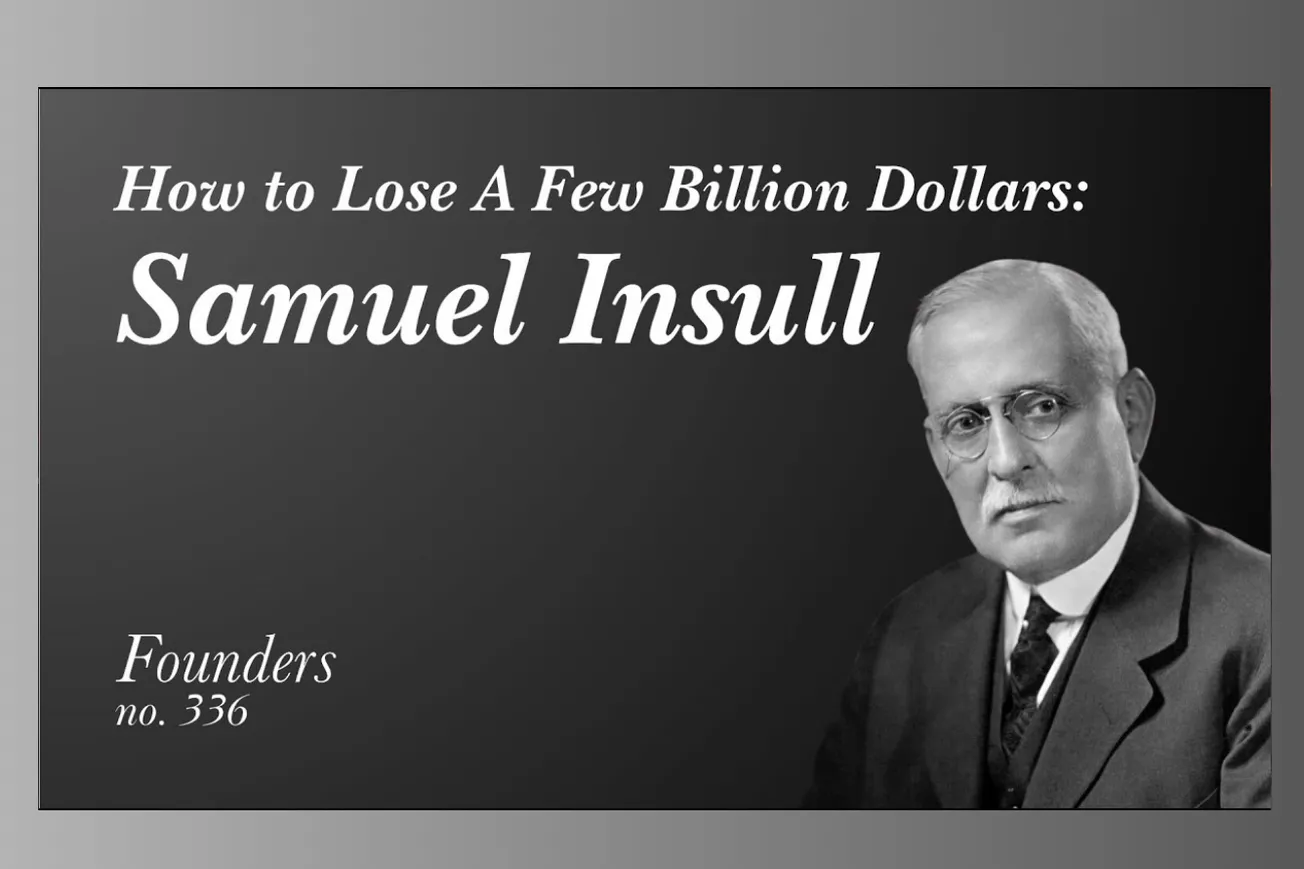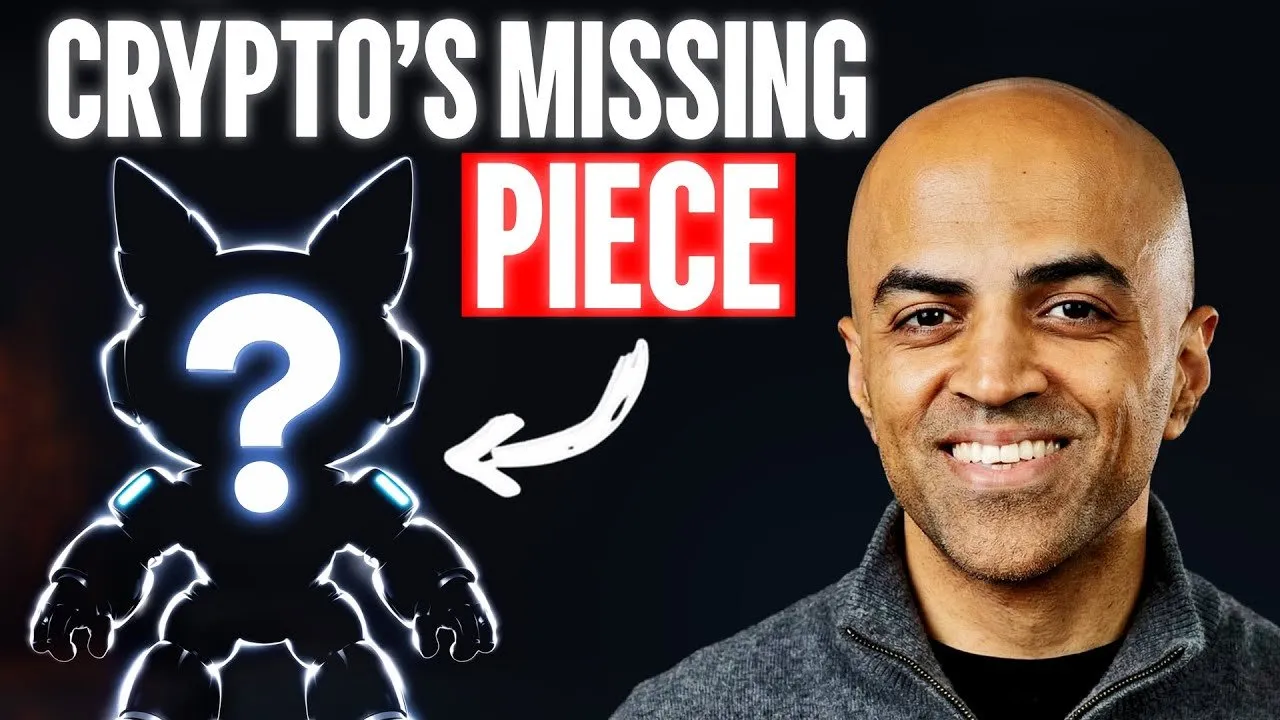Table of Contents
Samuel Insull built America's electric industry from nothing, then lost billions through dangerous overleveraging during the Great Depression.
Key Takeaways
- Samuel Insull created the modern electric utility industry and pioneered mass production concepts before Henry Ford
- His "demonic energy" and 16-hour workdays drove him from Thomas Edison's secretary to billionaire status
- Insull turned electricity from luxury to necessity by building monopolies and cutting prices dramatically
- He invented the open-ended mortgage and modern public relations techniques still used today
- Excessive leverage became his fatal flaw, borrowing $200 million during the Great Depression
- His empire collapsed when banks demanded collateral he couldn't provide, destroying 53 years of work
- Smart people go broke through liquor, ladies, or leverage - Insull chose leverage
- Never paying cash when you could give a note became his deeply rooted destructive habit
Timeline Overview
- Early Years (1859-1881) — Born in England, developed extraordinary work ethic, became expert stenographer while supporting family, discovered Thomas Edison through magazine articles
- Edison Years (1881-1892) — Sailed to America as Edison's private secretary, systematized Edison's chaotic business operations, helped found General Electric, learned fatal borrowing habits
- Chicago Empire Building (1892-1920) — Took over tiny Chicago Edison Company, built utility monopolies through acquisitions, pioneered mass production and public relations
- Peak Success (1920-1929) — Controlled electricity for 1/8 of America's population, personal fortune grew from $5 million to $150 million, became beloved public figure
- The Overleveraging (1929-1932) — Borrowed $200+ million after stock crash, ignored market warnings, created complex investment structures to fight corporate raiders
- Complete Collapse (1932-1938) — Lost control of 60+ companies, fled to Europe, faced multiple trials, died penniless in Paris subway station
Samuel Insull's Formative Years and Relentless Drive
- Insull inherited his father's imagination and enthusiasm but none of his impractical idealism, developing instead the energy and fortitude his father lacked completely. His father showed no interest in earning a living, while Sam displayed an obsessive love for operating companies from his earliest working years.
- His work ethic bordered on superhuman - maintaining 16-hour workdays from age 14 through his 70s, with what the author described as "near demonic energy" that made relaxation an act of will only undertaken when facing physical collapse.
- At 14, he started as an office boy but immediately began acquiring valuable skills, teaching himself stenography by working late into every night until achieving expert-level proficiency, following the same pattern as Carnegie learning telegraphy.
- His intellectual capacity allowed him to race through massive amounts of reading material, effortlessly perceiving important assumptions and thoroughly assimilating salient details while reasoning from particulars to broader generalizations about business principles.
- Early exposure to Samuel Smiles' self-help books instilled lifelong maxims: "Idle hands are the devil's workshop," "Time is money," "Things are simply done or not done," and "Only that which is useful is good."
- Through exceptional service as a stenographer, he gained access to Thomas Bowes, editor of Vanity Fair, working four nights weekly from 8 PM to midnight, then rising at 4 AM to transcribe notes before his day job, demonstrating the power of relationships built through service first.
The Edison Partnership That Shaped an Industry
- Insull's obsession with Edison began at 19 when he read every available article about the 31-year-old inventor, making Edison his hero and determining to tie their fates together through systematic preparation and relationship building.
- He gained employment with Colonel George Gouraud, Edison's European representative, where he systematically read every document about Edison's business affairs, ultimately knowing more about Edison's European operations than his own boss did within months.
- When Edison's chief engineer Edward Johnson complained about lazy English workers refusing weekend work, Insull volunteered to work weekends without pay, positioning himself as the ideal solution to Edison's chaotic business management style.
- His first night in America, Insull worked through until 4 AM analyzing Edison's European telephone securities worth $78,000, creating a complete distribution and sales plan that immediately proved his value to the overwhelmed inventor.
- The 12-year partnership saw Insull systematize Edison's office operations while carefully avoiding any attempt to systematize Edison's own unpredictable work methods, understanding that his role was building business systems around genius, not constraining it.
- During this period, they had to invent entire industries - not just electric lights, but every component of electrical systems including switches, sockets, cables, junction boxes, wires, insulators, fuses, meters, and manufacturing processes to make them.
Building the Chicago Electric Empire Through Strategic Monopolization
- Taking over Chicago Edison Company at 150th the size of General Electric for one-third his previous salary, Insull immediately demanded $250,000 in new stock, borrowing the entire amount from Marshall Field who believed in investing in bright young entrepreneurs.
- His revolutionary thinking inverted industry assumptions - while competitors viewed electricity as a luxury commanding high prices, Insull understood monopoly power meant serving everyone at the lowest possible prices to maximize the customer base.
- Within three months, he acquired the second-largest competitor, then the largest, using the same systematic approach Rockefeller employed in oil - target the biggest players first, and smaller ones follow automatically.
- His aggressive expansion during the 1894 financial panic eliminated six smaller competitors who couldn't afford replacement equipment, selling to Insull when caught between economic pressures and his vertical integration advantages.
- By combining scale with generous treatment of defeated competitors - paying more than their plants were worth - he built loyalty while eliminating opposition, understanding that money prevents enemies better than creating friends.
- The result exceeded all projections: while optimistic industry experts predicted maybe 25,000 customers maximum in Chicago, Insull aimed for the city's entire million-person population and eventually served far more through regional expansion.
Revolutionary Business Principles and Mass Production Innovation
- Insull followed consistent expansion principles throughout his career: raise new capital whenever possible, plow profits back into business, borrow every available dollar, treat workers generously for economic rather than sentimental reasons, and diversify operations to spread fixed costs.
- He pioneered the concept he called "massing production" - a phrase his publishers shortened to "mass production" - long before historians mistakenly attributed the term to Henry Ford, demonstrating superior understanding of scale economics.
- His load and diversity factor innovations became the foundation for all modern utility rate structures, balancing different customer types' usage patterns to maximize plant efficiency and minimize costs per unit of electricity delivered.
- Vertical integration allowed him to control every aspect of the electrical supply chain, from manufacturing equipment through generating power to customer service, creating insurmountable competitive advantages over smaller independent operators.
- The open-ended mortgage innovation emerged from clever repositioning - when his board rejected a $100 million bond request, he proposed a "mortgage with no limit" that sounded more conservative, ultimately raising $500 million under this structure.
- His systematic approach to acquiring talent through purchasing companies provided "the most prolific producers of executives" within his organization, essentially pioneering the acqui-hire strategy decades before the tech industry adopted it.
Mastering Public Relations and Customer Education
- Insull recognized that public utilities' vulnerability derived from lack of popular understanding, launching comprehensive customer education campaigns including public appearances, employee training, advertising departments, and free magazines distributed throughout Chicago.
- His most effective public relations tool was voluntary rate cuts - unprecedented actions that generated massive positive publicity while demonstrating the economic benefits of his scale-driven cost reductions to both customers and regulators.
- Understanding that 50,000 people appreciated utility services while 100 million Americans hadn't considered their importance, he aimed to reverse these proportions through systematic education about the complexity and value of electrical infrastructure.
- His two fundamental public relations principles established industry standards: first, provide the best possible service at the lowest predictable rates because that serves public interest; second, educate the public about operational details and industrial significance.
- By making electricity universally cheap and abundant, he transformed public perception from viewing electrical power as an exotic luxury to considering it "as natural and necessary as breathing" for millions of Americans.
- His companies pioneered welfare programs, rural electrification, and employee ownership plans years before government, labor, or most businesses adopted similar initiatives, building genuine community support beyond mere customer satisfaction.
The Fatal Leverage Addiction and Spectacular Collapse
- Insull's lifelong borrowing habit intensified dramatically after the 1929 crash, when he borrowed over $200 million during 1930 alone while most businesses contracted, demonstrating dangerous confidence that this depression would resemble previous manageable downturns.
- Banks eagerly offered unlimited credit during the late 1920s boom, with Continental Bank executives literally begging him at parties to borrow another $21 million by simply organizing new corporations, creating an environment that enabled his fatal overleveraging.
- When corporate raider Cyrus Eaton threatened takeover attempts, Insull created two investment companies to maintain control, but these structures required constant additional collateral as stock prices declined, eventually consuming his entire portfolio.
- The complex loan arrangements secured by his holding company stocks created a death spiral - each market decline demanded more collateral, and when the market dropped far enough, bankers would control his entire empire through foreclosure.
- By December 1931, every security from his investment trusts served as bank collateral, and when England abandoned the gold standard, short sellers spread death rumors that triggered $150 million in stock value losses within one week.
- On June 6, 1932, he spent an entire day signing resignations from 60+ corporate positions, emerging to tell assembled reporters: "Well gentlemen, here I am after 40 years a man without a job," before fleeing to Europe and dying penniless in a Paris subway.
Lessons from History's Most Expensive Business Mistake
Samuel Insull's story serves as entrepreneurship's ultimate cautionary tale. Here was a man who literally built an entire industry, pioneered concepts still used today, and accumulated billions in wealth - only to lose everything through a single fatal flaw. His overleveraging addiction proves that no amount of intelligence, experience, or past success can protect you from the devastating mathematics of excessive debt. When credit markets freeze and refinancing becomes impossible, even the most successful empires crumble overnight. Insull's tragedy reminds us that in business, it's not just what you build that matters - it's how you finance it.
Practical Implications for Modern Entrepreneurs
- Never mistake credit availability for permanent financial strength - banks that beg you to borrow more during good times will demand immediate repayment during crises
- Maintain conservative debt-to-equity ratios regardless of growth opportunities - rapid expansion financed through excessive leverage creates fragile business structures that collapse under pressure
- Build cash reserves for economic downturns rather than borrowing against future optimism - assume refinancing won't be available when you need it most
- Focus relentlessly on one industry where you have deep expertise - diversification into unfamiliar areas dilutes your competitive advantages and spreads resources too thin
- Systematize operations and build strong management teams early - sustainable businesses must function without their founders' constant involvement
- Invest heavily in customer education and public relations - businesses serving public needs require sustained community support and regulatory goodwill
- Treat competitors generously during acquisitions - paying fair prices prevents future enemies and builds industry relationships
- Use service-first relationship building to access influential networks - provide value before asking for favors or opportunities
- Study historical business failures as seriously as success stories - understanding how smart people fail prevents repeating expensive mistakes
- Remember that leverage amplifies both gains and losses - what accelerates growth during good times can destroy everything during bad times
Insull's 53-year career demonstrates how exceptional talent and revolutionary achievements mean nothing when destroyed by overleveraging. Even the brightest entrepreneurs can lose everything when they mistake temporary credit availability for permanent financial strength.





